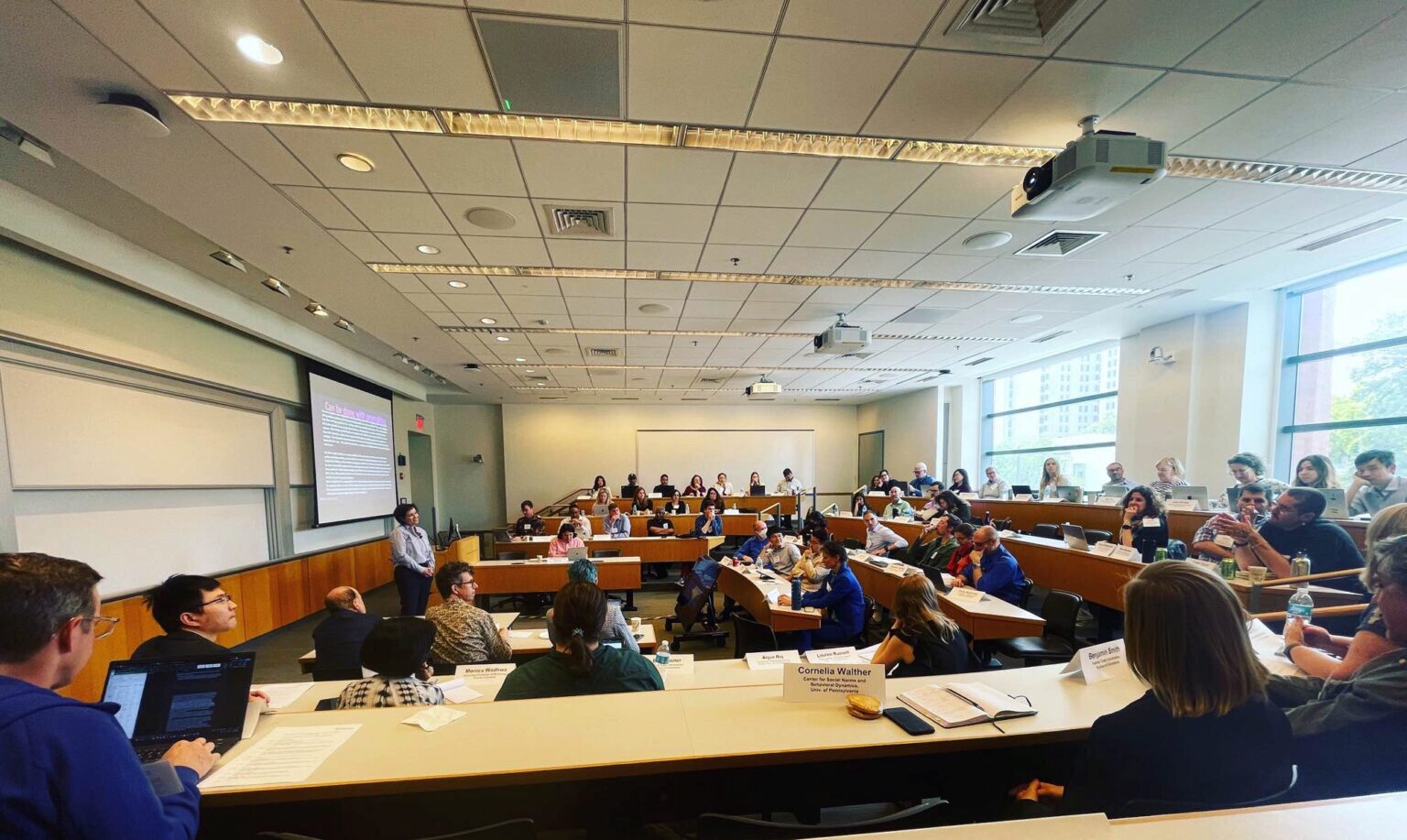Large Language Models: Computer Science meets Social Science
Recent advances in generative AI applications have captured the attention and imagination of investors, consumers, and organizations. For example, it took less than two months for OpenAI’s ChatGPT to acquire 100 million users, the fastest product adoption in history. At the same time, first- and second-order consequences of the deployment of this technology at scale are difficult to anticipate. Improvements in Large Language Models have been so fast, and the potential societal repercussions so profound, that a broad cross-disciplinary lens is necessary to start making sense of the implications.
Wharton’s Impact of Technology Initiative hosted its conference, “Large Language Models: Computer Science meets Social Science” on May 19, 2023, where practitioners and scholars from the fields of computer science and social science gathered for conversations around the potential for this technology to enhance welfare as well as emerging dangers.
Associate professor of Computer and Information Science Chris Callison-Burch, and professor of Computer and Information Science Lyle Ungar highlighted how LLMs are revolutionizing content creation. Ethical considerations were top-of-mind for Nate Fast, co-director of the Psychology of Technology Institute at USC who emphasized the need for informed approaches, Joào Sedoc, assistant professor of Technology, Operations, and Statistics at NYU who discussed the use of conversational agents in the critical domain of healthcare, and Chiara Longoni, assistant professor of Marketing at Boston University who shared her work on different use cases on the long-term impact of LLMs on moral judgments and decision-making processes.
Championing practical solutions were Lilach Mollick, Director of Pedagogy at Wharton Interactive, noting that LLMs have the potential to beneficially shape students’ thinking processes, and Jake Hofman of Microsoft Research, who drew intriguing parallels between AI and various means used by athletes to improve performance, showcasing the potential for AI to augment human cognition.
WITI co-directors, Robert Meyer and Stefano Puntoni noted, “Deep learning prediction models open up endless possibilities which we are just starting to explore. It is also clear that, when managed unwisely, such a powerful technology presents significant dangers. Regardless of whether one sees see the glass as half full or half empty, these developments are likely to transform many everyday activities and entire industries. Conference co-chair Konrad Kording underscored a goal of the conference, “Large language models will change our world. Let’s have the conversations and networking between disciplines needed to make these changes positive.”
CONFERENCE PRESENTATIONS:
Introduction to Large Language Models. VIDEO. Presenter: Chris Callison-Burch, Associate Professor of Computer and Information Science, University of Pennsylvania. Moderator: Konrad Kording, Penn Integrates Knowledge Professor, University of Pennsylvania.
What GPT Can (and Can’t) Do. VIDEO. Presenter: Lyle Ungar, Professor of Computer and Information Science, University of Pennsylvania. Moderator: Lynn Wu, Associate Professor of Operations, Information and Decisions, University of Pennsylvania
Hidden Attributes of Human and LLM Conversationalists. Presenter: Nate Fast, Associate Professor of Management and Organization, University of Southern California. Moderator: Stefano Puntoni, Professor of Marketing, University of Pennsylvania
AI and the Classroom. VIDEO. Presenter: Lilach Mollick, Director of Pedagogy, Wharton Interactive. Moderator: Christian Terwiesch, Professor of Operations, Information and Decisions, University of Pennsylvania
Conversational Agents and Healthcare. VIDEO. Presenter: Joào Sedoc, Assistant Professor of Technology, Operations and Statistics, NYU. Moderator: Nadia Figueroa, Assistant Professor of Mechanical Engineering and Applied Mechanics, University of Pennsylvania
LLMs and Moral Judgments. VIDEO. Presenter: Chiara Longoni, Assistant Professor of Marketing, Boston University. Moderator: Raghu Iyengar, Professor of Marketing and faculty director of Wharton Customer Analytics, University of Pennsylvania
AI-augmented Cognition. Presenter: Jake Hofman, Senior Principal Researcher, Microsoft Research. Moderator: Robert Meyer, Professor of Marketing, University of Pennsylvania
Listen: Prof. Lynn Wu and Dan Loney discuss ChatGPT and what areas it will and likely won’t impact. (Wharton Business Daily, May 23, 2023. podcast, 14 min.)
 Photo credit: Andrew Cameron Zahn
Photo credit: Andrew Cameron Zahn


